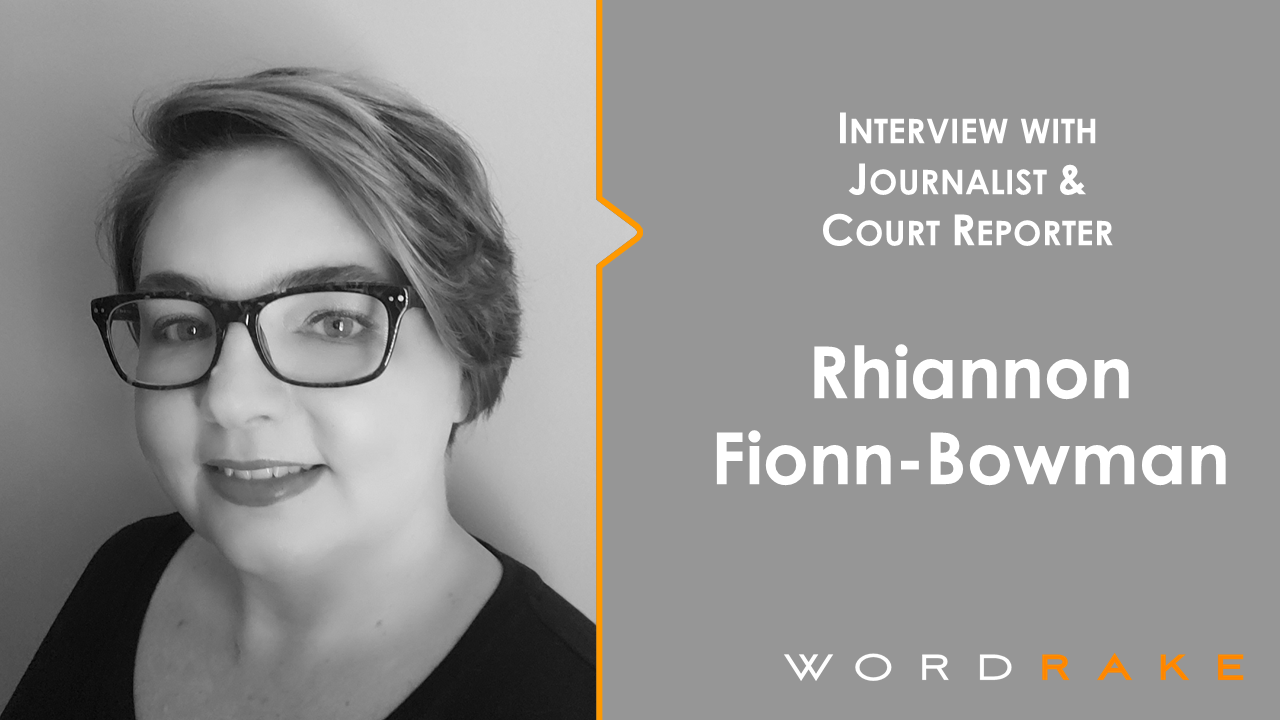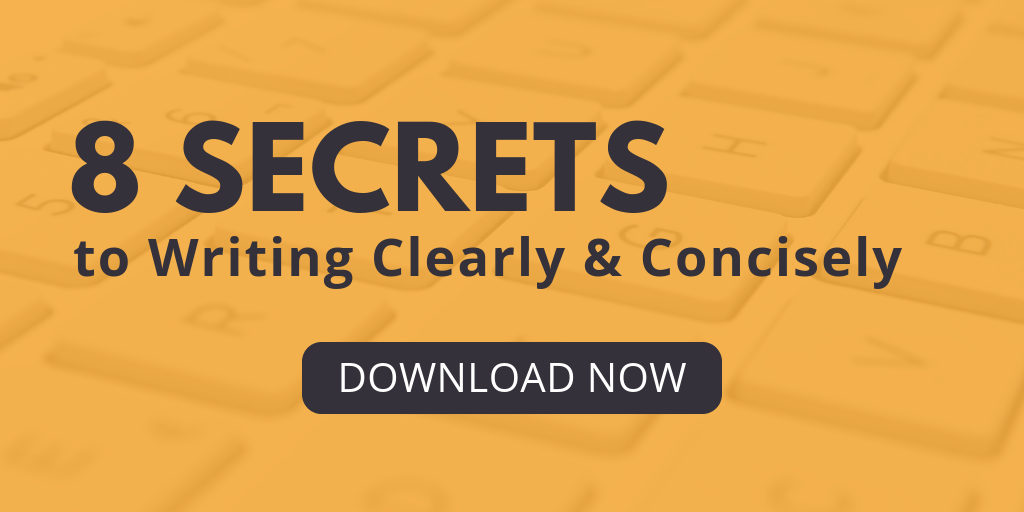Journalists excel at asking good questions and finding the story, which are the foundation of good writing. Good questions will reveal to you the story yearning to be written. Knowing your story will help you plan and focus your writing. And with that focus, you’ll know what’s important to your audience and deliver on deadline.
These principles also apply to legal writing. In this interview with award-winning independent investigative journalist turned court reporter and paralegal, Rhiannon Fionn-Bowman shows us how we can write more compelling legal documents—and deliver them on time—when we approach legal writing like journalists.
What is your role and how are you involved in legal writing?
I am an N.C. Certified Paralegal, a Digital Court Reporter, and a retired award-winning investigative journalist. I recently started a freelance paralegal business, Legal Word Trade, and am currently working remotely for various clients.
What can journalism teach us about legal writing?
A lot of the core principles are the same: Do thorough research, never submit your first draft, don’t take people’s words out of context, be fair and honest, and remember that good writing requires good editing—so you might as well read through your work one more time before you hit send, just to be safe. Better: Have someone else read your work before you submit it.
What can journalism teach legal professionals about witness interviews and fact-finding?
Allow some space for people to answer. Too often, I notice attorneys becoming impatient or frustrated, and they “step on” the witness’ testimony. That’s aggressive and puts the witness on the defensive. Someone in that position will be less forthcoming and less likely to add extras that you don’t even have to ask about because they will readily volunteer to fill an awkward-feeling pause. And, especially with virtual proceedings where talking over each other can lead to a record full of “inaudibles,” give people a chance to answer your questions, and purposefully leave gaps between the answer and your next question.
As far as fact-finding goes, give yourself a chance to brainstorm what information you need, where it might be located (or who owns it), and how you will get it. Ten minutes of planning might save you much more time later. While being unafraid to ask one more question is usually a good thing, you also have to know when to cut your research, and that might depend entirely on your client’s budget.
What can legal professionals learn from journalists about working with editors?
The first rule of effective communication is Know Thy Audience. Who are you writing for, and what are you trying to convince them to do? Don’t marry your words, i.e. don’t take edits personally. Ever. The editing process should be about clarity for your audience first, then polishing for perfection. It’s all about effectively communicating to your audience. Your ego must take a back seat. And don’t use several words—or giant words—when a more concise or simple word will do.
What instincts, habits, or approaches from the journalism world are you now applying in law?
Trust, but verify. Use plain language. Ask open ended questions. Practice active listening—and it is a practice. And learn to keep a straight face no matter what’s going on around you.
What is your writing process when you must write to length and deadline?
I begin early with a notes file of some sort where I can begin stashing research, emails, and anything else that is related—this includes a document with pertinent links, descriptions of those links, and often screenshots of the webpages in the event something changes.
On the day before your deadline, you should be polishing for perfection not pulling an all-nighter. I read the work out loud to myself and sometimes to someone else (who is patient enough to endure a lot of pauses and re-reading) more than once to check the pacing and understandability of the text.
And I spend a lot of time thinking about what I am going to write and any information holes in need of filling—in other words, what questions do I still have? If you wait until the last minute those questions will likely remain unanswered, but if you begin as soon as the assignment arrives, your brain will have time to stew on the subject and genuinely think through any roadblocks or counterarguments you might encounter.
It is also imperative for me that I have a silent, uninterrupted block of time to write. Because my husband also works from home and is a loud talker, like me, we have both invested in noise-cancelling headphones. If I need to focus, I will also turn off all notifications on my computer, phone, and social media. If the doorbell rings I will not answer. “No interruptions” means no interruptions; you cannot expect yourself to think clearly—and writing is thinking—if your train of thought is being constantly disrupted.
What are your top 3 tips for helping legal professionals better plan their writing to meet deadlines?
Start early, even if it’s a simple brainstorm session on a notepad. If your work is forever screeching in at the last minute, you’re doing it wrong and causing too much stress for yourself, everyone around you, and everyone involved. When you begin working on a writing project as soon as you get it, you are able to give your work enough time to breathe. I guarantee if you take a break from your writing you will find changes you’d like to make when you come back to it. And begin the habit of giving yourself a deadline that is actually the day before your work is due. On deadline day, you’re doing a final read through and polishing, or you’ve moved on to working on something else.
What is the importance of writing a captivating lead? How do you write one?
It’s everything if you want to grab someone’s attention in this frantic world. “Begin with the end in mind,” as the advice goes from The 7 Habits of Highly Effective People, by Stephen Covey. Tell the reader what your conclusion or argument is up front, then build your argument and supporting evidence around that and repeat your conclusion at the end.
What are the qualities of a good story? How do you use storytelling in legal writing?
Details, details, details. As the oft-repeated writing advice goes, “Show, don’t tell.” What sounds, smells, flavors, feelings, and sensations can you include? Use direct quotes to help further your story and avoid including quotes that do not advance the story. And, please, be brief.
What 3 problems do you see legal professionals facing most frequently in writing that could be solved by applying advice from the field of journalism?
Their own egos, procrastination, and not being fully prepared when they sit down to write. Bonus: Lack of editing help—it’s always good to get another set of eyes on your work. Seriously, when a lawyer says to me, “I don’t need editing help,” I know that’s a lawyer I don’t want to work with, because every writer needs editing help, even the best of the best. In fact, I assert the best are such good writers because they have editing help and/or are very good about editing their own work multiple times before publication.
What has journalism taught you about identifying the right source or the right expert?
That you should always ask the experts you do find who they would ask for additional information or what resources they might rely on for a particular topic. Then review those resources yourself and make/save copies of everything you can for your own reference. As much as you are able, know the answers to your questions before you ask them. And if you genuinely don’t understand something, ask the expert to explain in plain language, then give them as much time as they need to adequately explain. Assumptions are no help to anyone.
What are your tips for getting interviewees, experts, and witnesses to talk?
Be kind. Be patient, but persistent—make sure they answer the question you’re asking. Listen carefully. Give them plenty of time to answer—pauses are okay. If you give them the chance, your witness will probably fill the silence with more information than you asked for originally. If you appear upset or frustrated, you’ve already lost. Take some deep breaths before you begin an interview and take breaks if you need them. The more centered and calm you are, the more centered and calm your witnesses or interviewees will be. Remember: Most people never speak to a journalist or an attorney, so allow some easy questions at the start to shake off any jitters and demonstrate that you’re a reasonable person simply seeking the truth.
Journalists say: “Look for the rhythm of the story.” Is this true for law? How do you apply it in legal writing?
Absolutely. No one wants to read a boring document. If you’re being redundant with your word choice or littering your work with run-on sentences full of jargon and $3 words, you will bore your audience to sleep or leave them irritated. Use active and vivid language that is on point—don’t use three words or $3 words when a simple word will do. Mix your text with both short and long sentences. Break up paragraph-long sentences whenever possible. Read your work out loud to yourself or someone else to check your pacing.
About Rhiannon Fionn-Bowman
Rhiannon Fionn-Bowman is a freelance N.C. Certified Paralegal, communications consultant, and digital court reporter. She was recently elected to the Metrolina Paralegal Association’s board as the 2nd VP of Programs. She was also elected to the N.C. Paralegal Association as the editor of the organization’s quarterly newsletter, The Forum. Rhiannon is also a retired award-winning independent investigative journalist and filmmaker—her work in film and journalism focused mainly on coal ash (the waste product that remains after coal is burned to generate electricity) and the greater energy industry. You can follow Rhiannon on Twitter at @RhiFionn and @LegalWordTrade. Her website is legalwordtrade.com.






